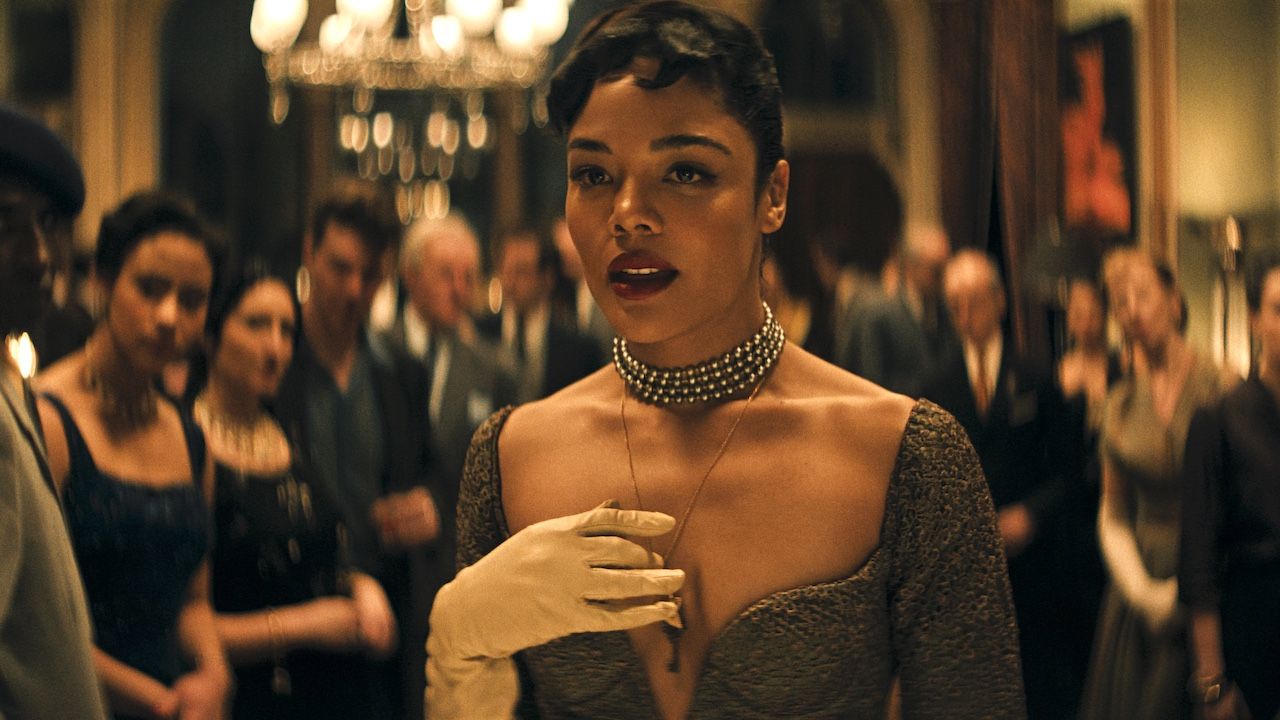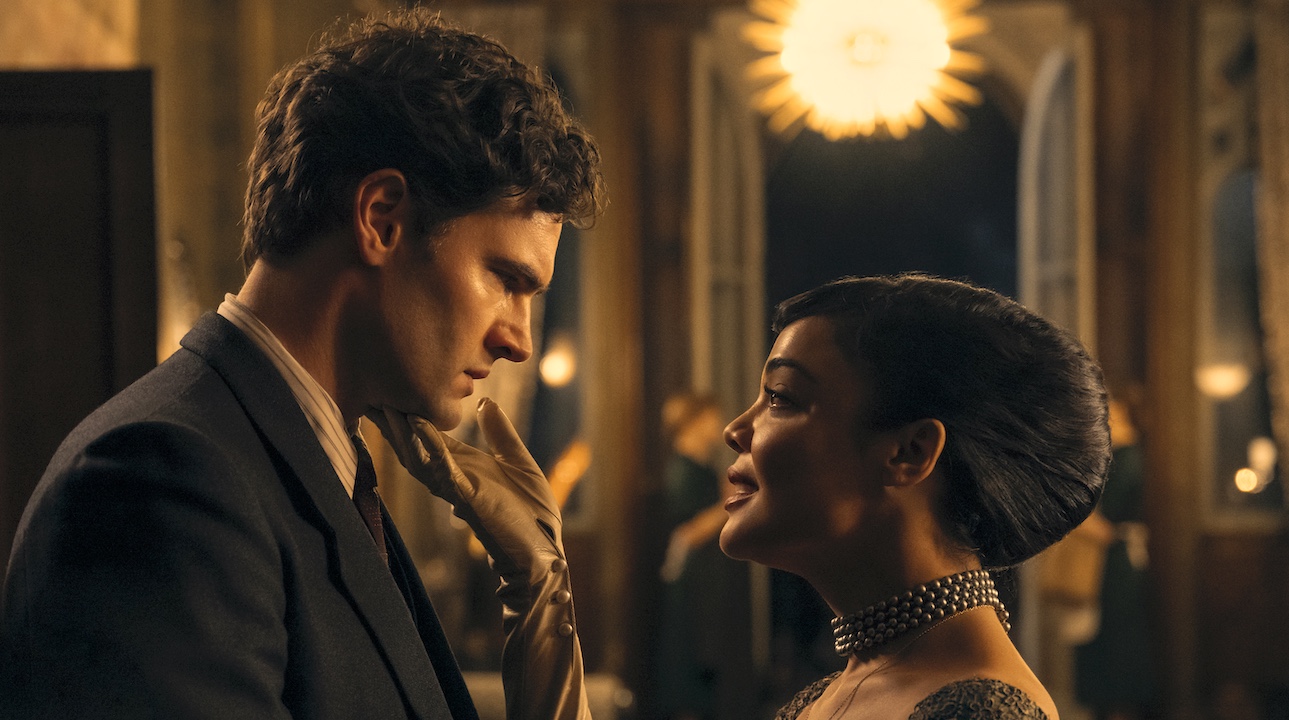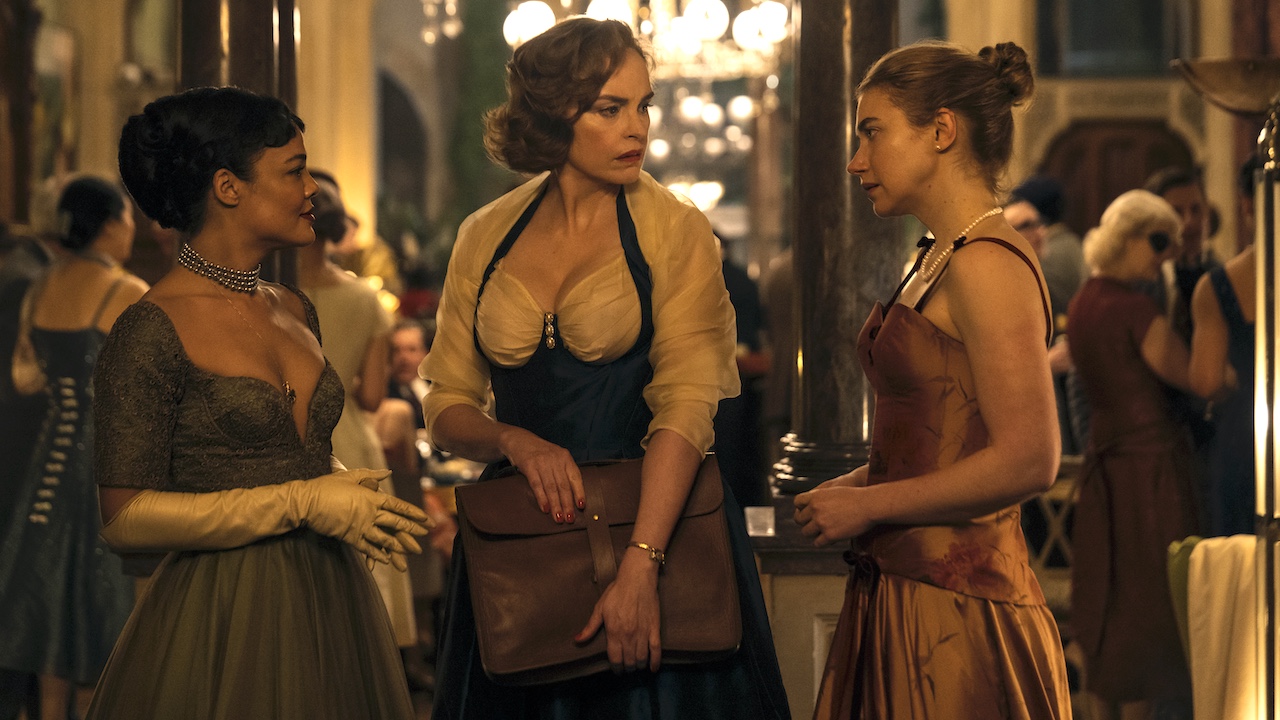
Ever since I noticed Hedda was among upcoming LGBTQ+ movies coming out this year, I’ve been intrigued about what was in store, and now that it’s new on streaming, I can’t recommend it enough. Whether you just checked it out, or want to learn more about the movie before clicking play, I want to delve into the clever way it puts a queer spin on a classic play from the 1800s.

What Hedda Is Based On
Hedda, is an adaptation of Henrik Ibsen’s play Hedda Gabler, which is over one-hundred and thirty years old. It’s coveted as a masterpiece in the world of literary realism and among works published during that time. It follows the daughter of a general, Hedda Gabler, who is newly trapped in a marriage she’s unhappy with to an academic named George Tesman. So when George’s academic rival, and a past lover to Hedda, Eilert Løvborg, comes back into their lives, Hedda decides to create havoc in his life. (No, I won’t spoil the ending in case you want to be surprised by the movie).

How It Puts A Queer Spin On The Classic Play
A lot of book adaptations take creative liberties with its source material, but I found this one to be particularly interesting, because it recontextualizes the play to tell a more layered story about Hedda. In the movie, which is helmed by The Marvels’ Nia DaCosta, it takes place in the 1950s instead, and in the contained location of a party that the Tesman’s are putting on themselves (rather than the new couple going to a party). Eilert is reworked as a secret female lover Hedda once had named Eileen (Nina Goss), who is currently dating a woman by the name of Thea (Imogen Poots).
A simple change to the gender of two of the main characters in the original play really deepens the overall characterization of Hedda. She’s not simply a woman trapped in a marriage, she’s a queer character (played by a queer actor in Thompson, if I may add), who gave up on her relationship with a woman in order to conform to what’s acceptable at the time: being the wife to a man.
In both versions of Hedda, she decides to sabotage her old lover, but in the context of the movie, there’s an added depth of Hedda pulling down Eileen with her because she seems to be jealous of her ability to have conviction as a queer woman, rather than settling in obedience of the patriarchal world they live in like she did.
The movie is a really magnetic retelling of Hedda that speaks to the story’s ability to remain influential over a century after it was initially published. And because Hedda in this instance is a mixed race woman as well, there’s also an element of her character who appears to be seeking power through her marriage as a means of survival and as a way to gain wealth, whereas Eileen, who is a white woman and academic, has more opportunities to embrace her queerness. Hedda must know won’t work the same for her, and uses her quiet rage with real violence against those around her.
All in all, Hedda is a really beautifully tragic commentary on intersectional femininity, and ways in which a male-dominated society can create a rift between women and minorities when society forces them into subjugation. There’s a lot of conversations to be had about, and I highly recommend you check it out yourself.







